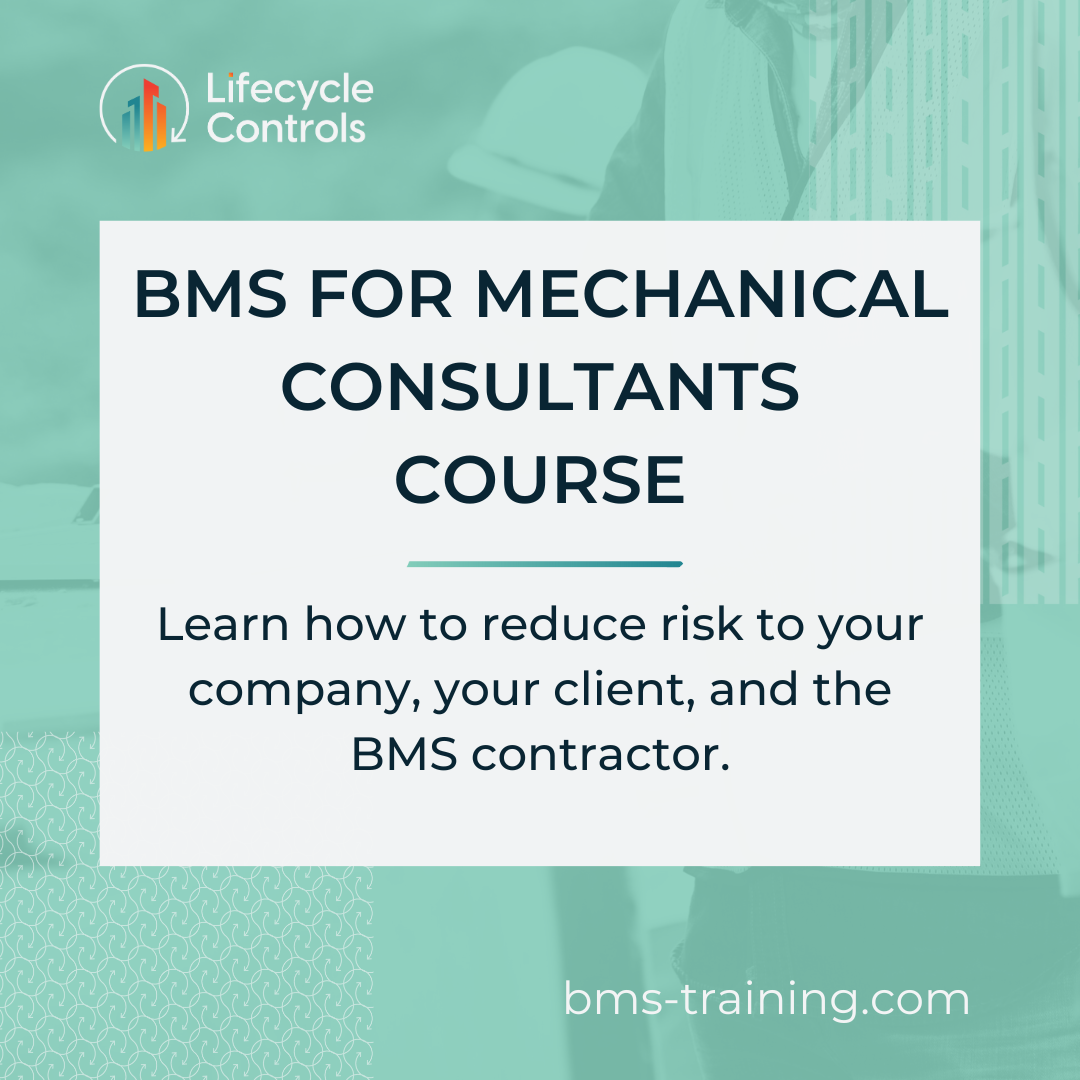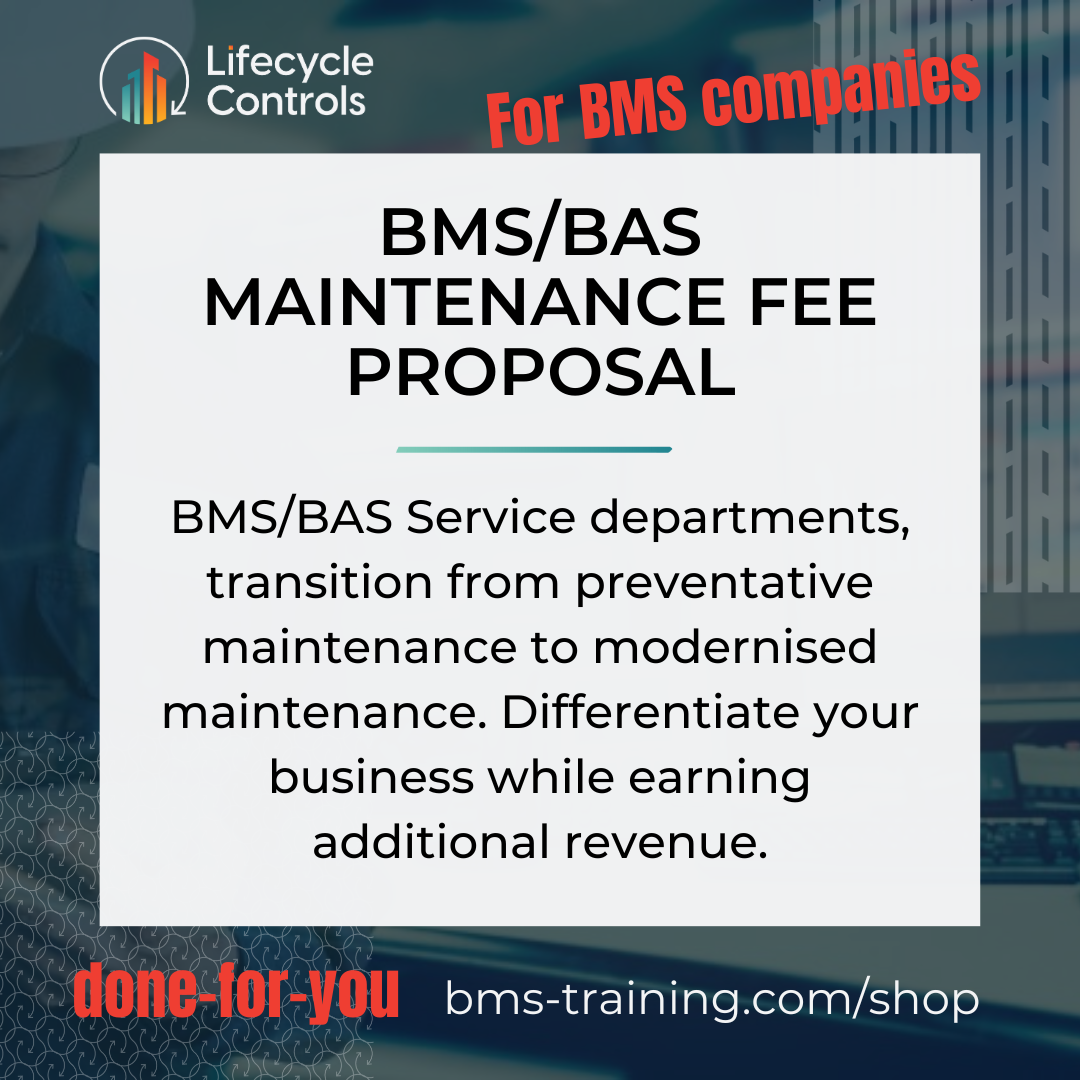BMS Control By High Level Interface
In the past 12 months I have noticed a couple of projects where Low Level control is being replaced with High Level control. In other words, controlling equipment over the network rather than using hardwired cables to controller outputs, mostly via BACnet MSTP communication to VSD's.
In this video we discuss 4 things you need to consider if you want to go down this road.
HLI (High Level Interface) control is generally not acceptable, mainly because the introduced reliability risks are not being mitigated.
The points raised in this video do not make HLI control acceptable, however introduce a starting point in moving towards a possible working solution.
Featured - Latest published online course

BMS for mechanical consultants course
This course was developed by a BMS consultant for mechanical consultants involved in Building Management System projects. Learn how to reduce risk to your company, your client, and the BMS contractor.
Self-paced online course.
12 hours of video lessons.
Training manual (+90 pages).
BMS design examples.
A sample of Lifecycle Controls BMS specification clauses are provided to assist with learning. You can use these in your own specification.
Online shop

Free control strategy mini courses
Create a free account in our Learning Management System and complete the free chilled water control system mini-course. A certificate is provided at the end of the course. A copy of the control strategy is provided as a Microsoft Word document for you to modify in your own BMS designs.

Please join our newsletter
To be notified when new courses, design templates, and digital products are published.
For updates to coaching availability.
For updates to business-to-business consulting services.
New Youtube video releases and occasional updates on what I am up to.
I will not fill up your inbox with crap.

Bryce Anderson
I am an independent Building Management System consultant based in Australia. I started in the BMS industry in 1998 and initially worked for BMS companies for the first 15 years of my career (2 years in South Africa, 9 years in London, and 4 years in Melbourne). In 2014 I transitioned into BMS consulting, saw a massive gap in the lack of specialist BMS consulting, and started Lifecycle Controls in 2017.
My focus is currently on BMS technical training, coaching, and B2B consulting for BMS companies and mechanical consultancies. Because, fixing one project at a time was making no difference. Training thousands of engineers will :-)
































